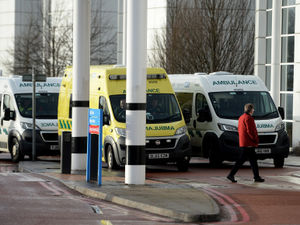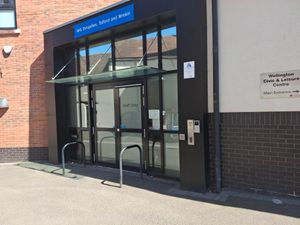Ambulance response times for urgent calls hit four hours due to hospital handover delays
West Midlands Ambulance Service is taking more than three hours longer to respond to urgent calls than it did in 2019.

According to new data from NHS England the region's ambulance service is the poorest performing in the country for responding to category three and four calls.
WMAS has apologised for the surge in response times, which it puts down to hospital handover delays which have almost quadrupled over the last two years.
For category three calls – urgent problems that require treatment and transport to hospital – the average waiting time in October was four hours.
This was three hours and five minutes longer than the figure for the same month in 2019, and 50 minutes longer than the national average in 2021.
For category four calls – non-urgent problems that require transport to hospital – waiting times surged to four hours 47 minutes, up by three and a half hours from 2019 and one hour longer than this October's national average.
The national standard states that all ambulance trusts must respond to 90 per cent of category three calls in two hours, and the same proportion of category four calls in three hours.
The figures were revealed in response to a parliamentary question to the Department of Health and Social Care.
The answer noted that WMAS had the longest average waiting times across England for categories three and four. South Western Ambulance Service (SWAS) has the longest mean waiting times for categories one and two, which include life threatening and serious conditions.
All 11 ambulance trusts in England are at their highest state of alert due to a huge surge in callouts, staff shortages and delays in getting patients into hospital.
A West Midlands Ambulance Service spokeswoman said: “We would like to apologise to all of the patients who have waited longer than we would have wanted.
"The whole of the NHS remains under severe pressure which is being felt intensely in our service in the West Midlands; hospital handover delays unfortunately mean patients are waiting longer for an ambulance response.
"Unfortunately, we were also dealing with high levels of demand from people with life-threatening conditions.
"We are working with all local partners across the health and care system to reduce delays so crews can respond to the next incident as quickly as possible, and staff and volunteers continue to work tirelessly to respond as soon as we can.
“We are continuing to bolster frontline and control room staffing and have introduced a number of measures to help manage pressures in the service."
According to official figures WMAS lost 28,925 hours due to handover delays in October 2021. In October 2019, a total of 8,214 hours were lost.
In a bid to reduce delays WMAS has deployed paramedics in control rooms to work with ambulance crews. Bosses say that as a result, in September over 12,000 of more than 20,000 category three and four calls received saw patients diverted away from requiring an ambulance.
Currently around 43 per cent of calls result in someone being taken to hospital, the lowest rate in the country.
The problem has been exacerbated by the region's hospitals dealing with a surge in patients being admitted who did not present in the last 18 months due to Covid and have subsequently become seriously ill.
Addressing a recent emergency meeting of local health chiefs, WMAS regional operations director Mark Docherty said handover delays posed "by far the biggest risk" to services over the winter period.
Nationally, average waiting times have more than doubled over the last two years.





